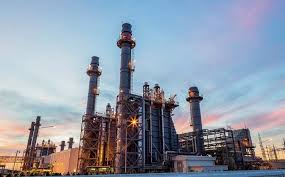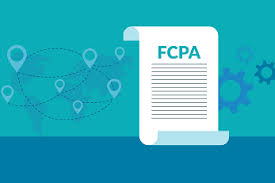Albemarle’s Reliance on Third-Parties to Execute Bribery Schemes (Part II of III)

Albemarle’s bribery schemes look and sound like text-book examples of third-party agents being paid high commissions as a way to funnel bribery payments to foreign officials at state-owned oil refineries. However, as usual, there is more than meets the eye in the factual descriptions.
The DOJ and SEC settlements focused on bribery conduct in Vietnam, Indonesia and India. However, the SEC also cited Albemarle’s control deficiencies with respect to its third-parties in China and the United Arab Emirates (“UAE”).
Background
Albemarle maintained three global business units: catalysts (including Refining Solutions), lithium and bromine. The Refining Solutions business sold catalysts through sales offices and third parties. The President of the Refining Solutions reported directly to Albemarle’s CEO. Albemarle centrally coordinated its compliance, legal, finance, contracting and internal audit functions.
Albemarle used sales agents to sell refinery catalysts in Vietnam, India, Indonesia, China and the UAE. The Indonesia and China sales agents also served as distributors.

Albemarle was well-aware of the bribery risks in the refinery catalyst business. Internal reports conducted in 2013, 2015 and 2016 identified numerous gaps in the Refining Solutions business’ reliance on third-party agents and distributors. As examples, internal audit cited that sales agents and distributors were paid despite incomplete due diligence; lack of a written contract; absence of anti-corruption compliance provisions; and payment of above-average compensation rates. In response to the 2013 report, Albemarle implemented some improvements but failed to remedy all of the cited compliance gaps, including payment of above-normal commission rates. In addition, in various countries, Albemarle failed to secure required reports detailing the agents’ sales activities, backdated various agreements and reimbursed vague, unsupported, and extra-contractual expenses.
Vietnam

In Vietnam, Albemarle corruptly obtained contracts at two state-owned oil refineries, (i.e., PetroVietnam, and Nghi Son Refinery and Petrochemicals LLC (“NSRP”), through an intermediary sales agent who requested increased commissions to pay bribes to Vietnam officials and to structure tender requirements to favor Albemarle. The Vietnam sales agent had no experience selling catalyst and had only entered the Vietnam market three months before being retained.
The Vietnam sales agent touted his friendship with key decision makers at a Vietnam refinery. The agent was hired at a commission rate of 4.25 percent and later increased to 6.5 percent in 2015, despite Albemarle emails suggesting that such additional compensation would be used to fund bribery payments.
The sales agent provided Albemarle with important nonpublic information concerning the competitors and state-owned customers. In addition, the sales agent provided valuable information used by Albemarle to submit proposals in response to tenders issued by a joint venture refinery in Vietnam, and to modify tender requirements to benefit Albemarle’s position. The joint venture included PetroVietnam and Kuwait Petroleum International, also a state-owned entity.
In requesting an increase in the sales agent’s commission rate, the sales agent claimed that it was needed to “take care [of]” and “contribute” to state-owned refinery officials in order to “secure orders,” “win the job,” and avoid “los[ing] the market.”
Albemarle terminated the Vietnam agent in 2017 after it began its internal investigation.
Indonesia

In Indonesia, Albemarle used a third-party sales agent to corruptly obtain catalyst business with Pertamina, Indonesia’s state-owned oil company, even after that third-party intermediary had informed Albemarle that it was necessary to pay bribes to Pertamina officials to obtain business. The Indonesia sales agent paid bribes to foreign officials to obtain contracts and non-public information concerning tenders and competitors’ products.
In 2012, Pertamina requested that Albemarle replace its existing sales agent with the Indonesia sales agent because the Indonesia sales agent was “very close friends” with Pertamina officials and family members. The Indonesia sales agent directed the agent company not to include details in its invoices concerning “tips” paid to various foreign officials at the refinery.
In 2013, the Indonesia sales agent told three Albemarle sales staff that he paid bribes to Pertamina officials and needed an increase in the applicable sales commission rate. The three Albemarle sales staff did not report the sales agent’s admission to their supervisor, legal or compliance or take any steps to terminate the relationship.
India
In India, Albemarle used a third-party intermediary to corruptly retain catalyst business with IOCL, India’s state-owned oil company, and a private company. The India sales agent also prevented Albemarle from being blacklisted for failing to meet a contract performance guarantee. With the assistance of the Indian sales agent and specific bribery payments to IOCL refinery officials, Albemarle secured catalyst orders and secured sensitive, non-public information to aid Albemarle in the bidding process.

During the due diligence process, the India sales agent raised a variety of red flags, including his claim that the agent’s board of directors included two former IOCL officials, the India agent’s statement he paid bribes to prevent the blacklisting of Albemarle in India, and Albemarle’s understanding that the sales agent intended to pay bribes from his relatively high, 3 percent commission compensation. An Albemarle sales executive described the commission as “extremely high” and “far from any possible realistic justification.” In addition to the sales commission payments, the Indian agent was reimbursed for over $100,000 in vague and unsupported expenses.
China and UAE
Albemarle hired, paid and increased commission rates for sales agents in other countries, including China and the UAE, without ensuring that its payments were reasonable and for legitimate services.
Albemarle obtained catalyst sales from a state-owned refinery in China based on the recommendation of a foreign official at the refinery who was related to the sales agent. The Albemarle officials omitted this family relationship in completing the due diligence questionnaire. In addition, the sales agent had no website and was authorized to do business in China only weeks before beginning to work for Albemarle.

The China agent’s commission compensation rate was “high” and an Albemarle executive explained that he expected large returns. Albemarle agreed in 2014 to raise the commission rate because of the agent’s “good connection” to the state-owned refinery.
In the UAE, Albemarle used a sales agent to obtain catalyst orders from a state-owned refinery. Albemarle did not conduct any due diligence until after it executed a sales agency agreement with the agent. The UAE agent had close ties to the UAE government and royal family, which was contrary to the representations made in the due diligence questionnaire.















